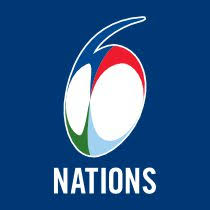 Six Nations executives have been given until the end of the month to find new sponsors for the biggest annual tournament in world rugby after struggling to find a replacement for RBS, which ended its backing last season after 14 years. The Six Nations had been looking for a six-year, £100m deal, but having spent the past 12 months talking to a number of potential backers, there is only one firm offer on the table. That is understood to be less than the £11m a year paid by RBS at the end of its contract as the economic uncertainty blown up by Brexit deters sponsors.
Six Nations executives have been given until the end of the month to find new sponsors for the biggest annual tournament in world rugby after struggling to find a replacement for RBS, which ended its backing last season after 14 years. The Six Nations had been looking for a six-year, £100m deal, but having spent the past 12 months talking to a number of potential backers, there is only one firm offer on the table. That is understood to be less than the £11m a year paid by RBS at the end of its contract as the economic uncertainty blown up by Brexit deters sponsors.
The championship starts in February and the tournament committee, which met last week, told its executives that a deal had to be agreed within a fortnight.
While there has been interest from potential sponsors, no one has come anywhere near the asking price and there is concern that further delay could lead to the one offer being withdrawn. That would mean the championship lacking a backer in 2018 and that would blow a significant hole in the finances of the three Celtic unions, Wales, Scotland and Ireland.
There are other hurdles facing the Six Nations. Companies are often reluctant to become involved after a long-serving backer exits and it was a constant struggle for RBS to have the media to include its sponsorship when talking or writing about the tournament.
The market in sport has tightened after a period of boom. Premiership Rugby failed to find a replacement headline sponsor for Aviva this season after a long search. The company agreed to carry on for another year but for a heavily discounted price –believed to be in the region of 30% less – and the fears of some unions in the Six Nations is that far from securing a bumper package, they will be fortunate to even match the amount RBS paid.
In January, at the launch of the 2017 tournament, the championship’s chief executive, John Feehan, said: “The Six Nations is the biggest sponsorship in world rugby by a country mile. We’ve been in contact with well over 150 companies and we’re in a very good place. It will probably be another six months until we have a decision. It is not just about being the highest bidder: we want a sponsor who’s actively engaged not just in Britain but around the world and see potential in markets like the USA.”
Eight months on the Six Nations has had to lower its target. Unions remain hopeful that an increase on the RBS deal can be secured, but given Brexit, a deal up to the end of the 2021 tournament looks more negotiable than the six-year agreement envisaged when RBS announced in June last year that it was ending its backing.
Unlike the Premiership in England, matches in the Six Nations are televised live on terrestrial television and in 2015 the combined TV and digital audience was 140m. Attendance figures topped 1m that year and it was against that backdrop the Six Nations expected to secure a 50% hike in sponsorship. But with the financial services sector no longer a major player because of tighter regulation and global brands not convinced about the value of a championship played in western Europe, tournament executives have found it a tough sell.
If no firm offer is forthcoming by the end of the month, the instruction from the committee is to accept the one that has been on the table for some weeks – even with the small drop in revenue it would bring.
theguardian